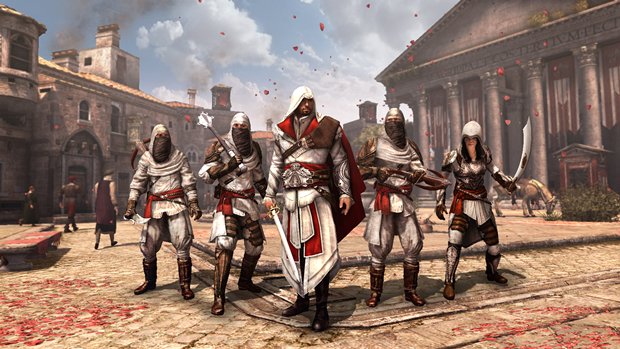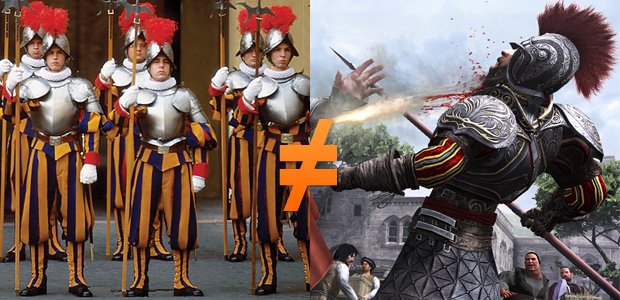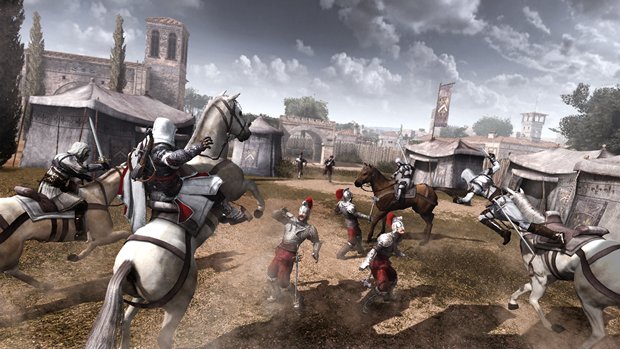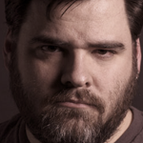Assassin’s Creed: Brotherhood – single-player hands-on
Tons of new plot and gameplay details revealed in our first extended session with the game
If you thought Assassin’s Creed II ended on something of a cliffhanger, then you might be relieved to know that, while Assassin’s Creed: Brotherhood doesn’t bear the all-important “III” in its title, it picks up exactly where ACII’s story left off. Which is to say (and this will be a spoiler for those who haven’t finished the game) it picks up in the depths of the Vatican, after Ezio Auditore, master Assassin of Renaissance Italy, has beaten the shit out of the Pope and received an apocalyptic message – addressed directly to his modern-day descendant Desmond Miles – from a long-dead precursor civilization.

That’s one of many revelations we came away with after an extended session with the game’s single-player campaign, which – while playing more or less identically to ACII – shakes up the formula a bit and adds a ton of new stuff, not the least of which is the entire city of Rome (which appears in addition to some old familiar locations, rather than in place of them). For starters, it gave us a chance to see a lot more of the Vatican than we did when sneaking into it at dawn in ACII’s final mission.
After exiting the vault to discover that the Pope had escaped, Ezio proceeded to lose the Pope’s staff (actually an ancient, mind-controlling artifact) before being rescued by his uncle Mario. As Ezio and Mario pushed past an irate (but pacifistic) crowd of monks, we exited into a small, open plaza filled with red-robed Cardinals, who apparently had no idea what had transpired. Once we were done taking in the sights, though, the Vatican guards attacked. Sadly, they looked like ACII’s regular soldiers rather than the more flamboyant Swiss Guard that actually guards the Vatican, but the fight – most of which was handled by Mario as the pair escaped – was a good refresher for how the game’s combat works.

Above: Still, seeing actual Swiss Guard uniforms would have been a nice touch of realism
If you’ve played ACII, then you already know what to expect; the guards have a tendency to surround Ezio, who can then lash out at them one at a time, using a sword, his hidden blades or a variety of other implements of death. As always, there’s a heavy emphasis on reversals, with Ezio able to score killing blows by parrying attacks or yanking away his enemies’ weapons outright. The fights also seemed a little more violent this time, with Ezio bringing his hidden hand cannon to bear for swifter, more explosive close-range executions than usual.
Once we’d cut our way through the Papal guards, we took to the rooftops of Rome, where we followed Mario (who was surprisingly spry for a middle-aged mercenary) to a high ledge overlooking a canal. Once there, Ezio withdrew the Apple of Eden (another mind-controlling precursor artifact, and a big-time series MacGuffin) from his cloak and prepared to drop it into the drink… but then he hesitated. Acknowledging that destroying such a powerful artifact wasn’t a decision to be taken lightly, Mario offered to keep the Apple safe until Ezio had made up his mind, and the two rode back to their base of operations in the fortress town of Monteriggioni.

We regained control outside the town walls, and immediately noticed that the riding controls seem to have been refined a little, with Ezio’s horse now able to make 180-degree turns on a dime. As for Monteriggioni itself, Brotherhood assumes that you finished ACII with the best possible results; the formerly dilapidated town is vibrant, having been fully restored by Ezio’s efforts, and Ezio’s mother (having been given all 100 collectible feathers) is no longer a catatonic wreck. Naturally, everyone’s thrilled to see Ezio back, but shocked when he tells them he let their archenemy Rodrigo Borgia – better known as Pope Alexander VI – live. Naturally, Ezio doesn’t think the humiliated pope will try anything Monteriggioni can’t handle, which is as good a cue for ominous music as you’re ever going to get.
Sign up to the GamesRadar+ Newsletter
Weekly digests, tales from the communities you love, and more
The rest of Ezio’s time in Monteriggioni was spent doing a couple of busywork missions – helping a girl carry flowers up to the Auditore Villa, finding Mario’s lost horse and trying out one of the newly installed cannons on the city wall. We also tried out a new way of scaling heights quickly: pulley lifts, which can yank him rapidly upward if he grabs their ropes.
And then, following a night of implied, mostly clothed passion with noblewoman Caterina Sforza, this happens:
Despite feeling like it’s on rails, the siege sequence was a lot of fun, as the close camera angles and enormous-looking armies gave the battle a pitched, desperate feel. Following the chaos, Ezio was dragged to safety by a couple of friendly mercenaries, who then backed him up as he proceeded to stumble and carve his way through another detachment of Borgia troops that stood between him and the Villa, now partially ruined by cannon fire. With most of the citizens successfully evacuated outside of the city walls – thanks to a secret passage located in the also-secret Assassin crypt beneath the mansion – Ezio gathered up his mother and sister Claudia and took them into the passage, locking the entrance behind him.



